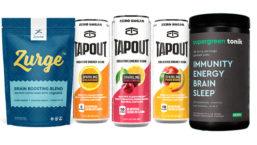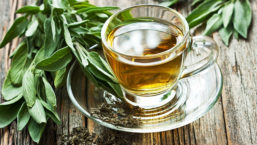Kerry Hughes
Kerry Hughes, MS, principal for EthnoPharm, is an ethnobotanist, herbalist, and author with a 20-year record of success in natural product development. EthnoPharm specializes in global natural product development and education, innovative product formulation, and nexus-of-market opportunity identification. Hughes is driven by a "tenacious fascination with the potential health-enhancing role plants can play." With a focus on ethnobotanical discovery and strategic innovation, Hughes and EthnoPharm continue to expand the boundaries of new natural product development, catalyze applied phyto-product breakthroughs, and bring to market new, efficacious, and profitable products that not only heal people but help protect the threatened global biodiversity.
ARTICLES
Modifying Flavor with Biodiversity
Botanicals can be powerful tools for boosting flavor and masking off-flavors
September 4, 2024
Reasoned Opinion | Episode 4
Kerry Hughes’ Spots the Best Botanicals at Natural Products Expo West
Ethnobotanist Kerry Hughes reports on interesting uses of botanicals in foods and beverages showcased at the Natural Products Expo West.
April 22, 2024
Sleep Better, Think Smarter with These Ingredients
Schisandra, Turmeric, Saffron, Tart Cherries, Pumpkin Seeds and Kiwifruit are among the ingredients that offer product developers sources of innovation for sleep and brain health products
June 21, 2023
Formulating Botanicals in New, Better-for-You Products
Botanicals are the next wave in immunity-directed food and beverage ingredients.
June 20, 2023
Reviewing Essential Fats and Fat Compounds for a Healthy Diet
More than a third of consumers between the ages of 25 and 44 are actively seeking to eat more healthy fats
November 9, 2022
Botanical Benefits Backed by Research
Emerging botanical ingredients open opportunities for health and wellness product developers
April 5, 2022
2022 PREDICTIONS | PROTEINS
Finding the Best Protein Sources for Specific Formulations
Protein Paradox: While the number and variety of protein sources expand, each source is unique in its flavor, texture, and nutrition profiles
December 20, 2021
2022 PREDICTIONS | BOTANICALS
Six Beneficial Botanicals
The next wave of plant-based bioactives promises to focus on stress and mood
December 14, 2021
Unlock the Future of Food and Beverage Innovation
Are you a leader in research & development? Stay ahead of the curve with Prepared Foods, the premier source of information and insights for today's trend leaders and taste-makers in food and beverage manufacturing.
JOIN TODAYCopyright ©2025. All Rights Reserved BNP Media.
Design, CMS, Hosting & Web Development :: ePublishing











